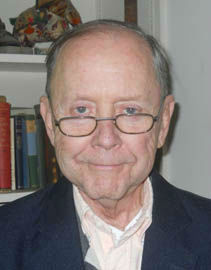
Culture
Among the 218 recommendations produced by this highly unrepresentative body were proposals for ordaining women and married men, taking an open attitude toward homosexuality, approving contraception, and giving communion to divorced and remarried Catholics whose first marriages hadn't been annulled.

Shaw
People fretting over the pros and cons of synodality should seek enlightenment in the story of "shared responsibility" half a century ago. History doesn't literally repeat itself, but what happened then suggests why we need to move ahead carefully now while avoiding new mistakes.
Shared responsibility -- the Synodality Lite of the 1970s you might call it -- was all the rage in the heady days right after Vatican Council II. Meetings were held and documents published promoting the idea, and preliminary steps were taken by setting up pastoral councils of clergy, religious, and laity in dioceses throughout the country.
As planners saw it, the capstone of this burgeoning superstructure would be a National Pastoral Council where bishops, priests, religious, and lay people could hammer out policy for the Church's socio-political program at the national level.
According to the plan, this national body would be a fusion of the United States Catholic Conference (created after Vatican II along with the National Conference of Catholic Bishops) with the National Advisory Council recently created to counsel the bishops.
But the Vatican stepped in and, in a letter to bishops, essentially said: No, not now. The reason seemed to be that a National Pastoral Council in the Netherlands was held to blame for the dismaying implosion of Dutch Catholicism then taking place.
Rather than go away quietly, however, shared responsibility made a noisy comeback via a boondoggle with the provocative name Call To Action. Who were called and to what action were left unstated. Promoted as the crown jewel of the American bishops' contribution to the U.S. Bicentennial and preceded by "hearings" staged in several parts of the country to whip up interest, Call To Action brought together 1,340 delegates in Detroit for three days in October of 1976.
And who, you may ask, were those delegates? Conservative writer Russell Kirk, there as a journalist, called them "church mice." Most were chosen by their bishops and, as later investigation determined, half were on the Church's payroll.
Among the 218 recommendations produced by this highly unrepresentative body were proposals for ordaining women and married men, taking an open attitude toward homosexuality, approving contraception, and giving communion to divorced and remarried Catholics whose first marriages hadn't been annulled.
The conference of bishops promised to study the proposals. Not surprisingly, that was the end of it.
The differences between then and now are obviously very real. Then it was the Vatican that nixed national pastoral councils; now it's Pope Francis who is the moving force behind synodality. But the Call To Action of 1976 unquestionably has a family resemblance to the recent "Synodal Path" in Germany with its much discussed set of proposals that, while bearing the imprint of 2023, nevertheless sound remarkably like the Call To Action laundry list of 1976. Is this perhaps a case of what Yogi Berra memorably called "DéjÀ vu all over again"?
The Vatican shelved Synodality Lite at the national level half a century ago. But now the Holy Father wants universal synodality, and the synod of bishops that meets this October (and again, for reasons not clear, in October next year) will undoubtedly give it to him.
Moreover, just as in 1976, so now there really is a case for greatly expanding the participation of loyal, competent lay people in setting directions for the Church. But the experience with Call To Action is a disturbing reminder that there also are excellent reasons to hope the big winner doesn't turn out instead to be today's woke Catholicism.
- Russell Shaw is the author of more than twenty books. He is a consultor of the Pontifical Council for Social Communications and served as communications director for the U.S. Bishops.
Recent articles in the Culture & Events section
-
Happy New Year!Eileen McLaughlin
-
Joyful hopeMichael Reardon
-
Scripture Reflection for Jan. 5, 2025, The Epiphany of the LordDeacon Greg Kandra
-
Tolkien's world, still popular on the big screen, began with faith and wordsCecilia Hadley
-
Scripture Reflection for Dec. 22, 2024, Fourth Sunday of AdventDeacon Greg Kandra























